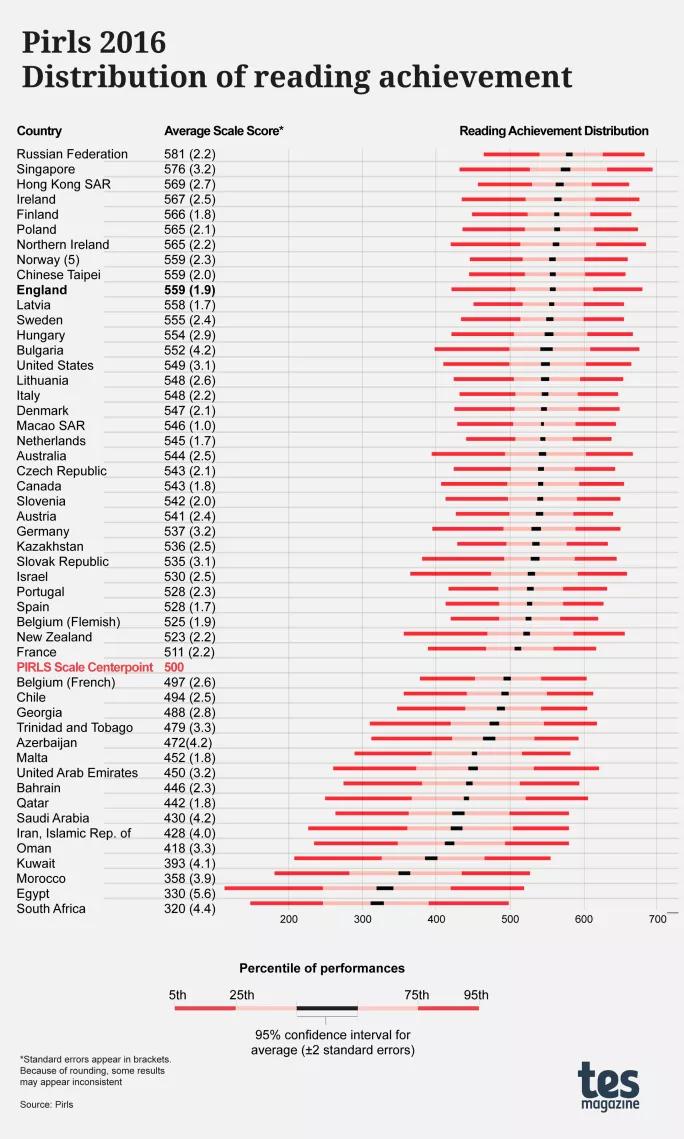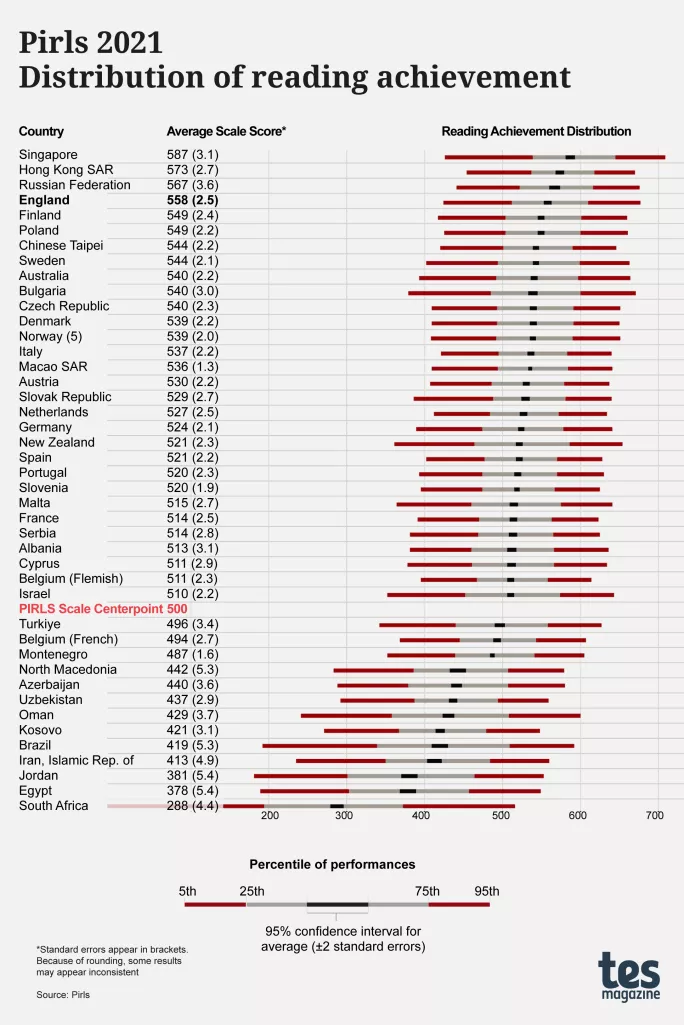England placed 4th for reading in global rankings

England has placed fourth for reading attainment in the 2021 Progress in International Reading Literacy Study (Pirls), jumping above countries such as Finland.
Ranked against 42 other countries, England has climbed up the rankings since coming joint eighth in the previous Pirls study in 2016.
However, England’s average reading achievement score has fallen slightly from 559 in 2016 to 558 in 2021.
- 2016: How Pirls ranks 10-year-olds around the world in reading
- Primary maths: Sunak given ‘wake-up call’ over maths-to-18 plan
- Pandemic: ‘We cannot ignore the reality of global Covid learning loss’
Conducted every five years, Pirls assesses the reading skills of 9- to 10-year-olds across the globe.
England and five other education systems delayed data collection for 12 months as a result of Covid, but still tested the standard 9- to 10-year-old pupil cohort.
However, some delayed by six months and tested older pupils at the beginning of their fifth year of formal schooling and are therefore not included in the original Pirls report.
The results also showed that England ranked 13th in average reading achievement by gender, with girls still outperforming boys.
However, the results also revealed that while the gender gap in England has narrowed to a 10-point gap, this is partly due to girls’ attainment falling.
And the gap between the lowest-scoring and highest-scoring pupils in England also continued to narrow.


Speaking to journalists at a media event yesterday, schools minister Nick Gibb said the results were a reflection of “the reforms and commitments of primary schools” in “putting reading at the centre of everything they do” and their commitments to embracing phonics.
On the dip in attainment for girls, Mr Gibb said he was “obviously concerned about any decline of any sort”.
However, he said that what the government had seen overall was that the result that England had achieved had “not been a significant change from 2016 despite all the challenges of Covid and despite the fact that most other countries in the survey have seen a fall in their score”.
Mr Gibb also voiced concerns over ensuring that pupils continue to sustain the gains achieved in maths and reading at primary school.
“In terms of key stage 3, I do worry about making sure that the gains that children are making in maths and reading in primary school are sustained through secondary school as well and what we need to do is for children to continue reading regularly,” Mr Gibb said.
‘Our approach is working’
The English Hubs programme (EHP) was established in 2018, with 34 primary schools selected for their expertise in teaching early reading.
The 34 hubs have since offered intensive support to a select group of partner schools.
A research report published by the Department for Education today finds that schools supported intensively by the hubs programme outperformed other schools by around 7 percentage points in the phonics screening check (PSC), when comparing the change in results between pre-pandemic (2016-17 to 2018-19) and 2021-22.
The analysis reported that partner schools appeared to have seen a more positive outcome than other schools in “dealing with the negative impacts of the pandemic on PSC attainment” and “this is possibly due to the EHP”.
Commenting on the results, prime minister Rishi Sunak said that they showed “our approach is working”.
He added: “Thanks to our brilliant teachers, our tireless pursuit of standards, the pioneering English Hubs programme and the introduction of the phonics screening check, more children are reading confidently and reaching their potential.
“While there is always more progress to be made, pupils and teachers across the country should be incredibly proud of this achievement today.”
Geoff Barton, general secretary of the Association of School and College Leaders, said that the results were a “badly needed piece of good news for an education system that feels beleaguered”.
“These excellent results in reading standards of 9- to 10-year-olds are testament to the hard work, skill and dedication of primary school teachers and leaders,” he said.
However, he added: “The government is quick to claim that this is the outcome of its policies, but in truth, these results have been achieved despite the government’s record of neglect which has led to a critical shortage of funding and teachers.”



